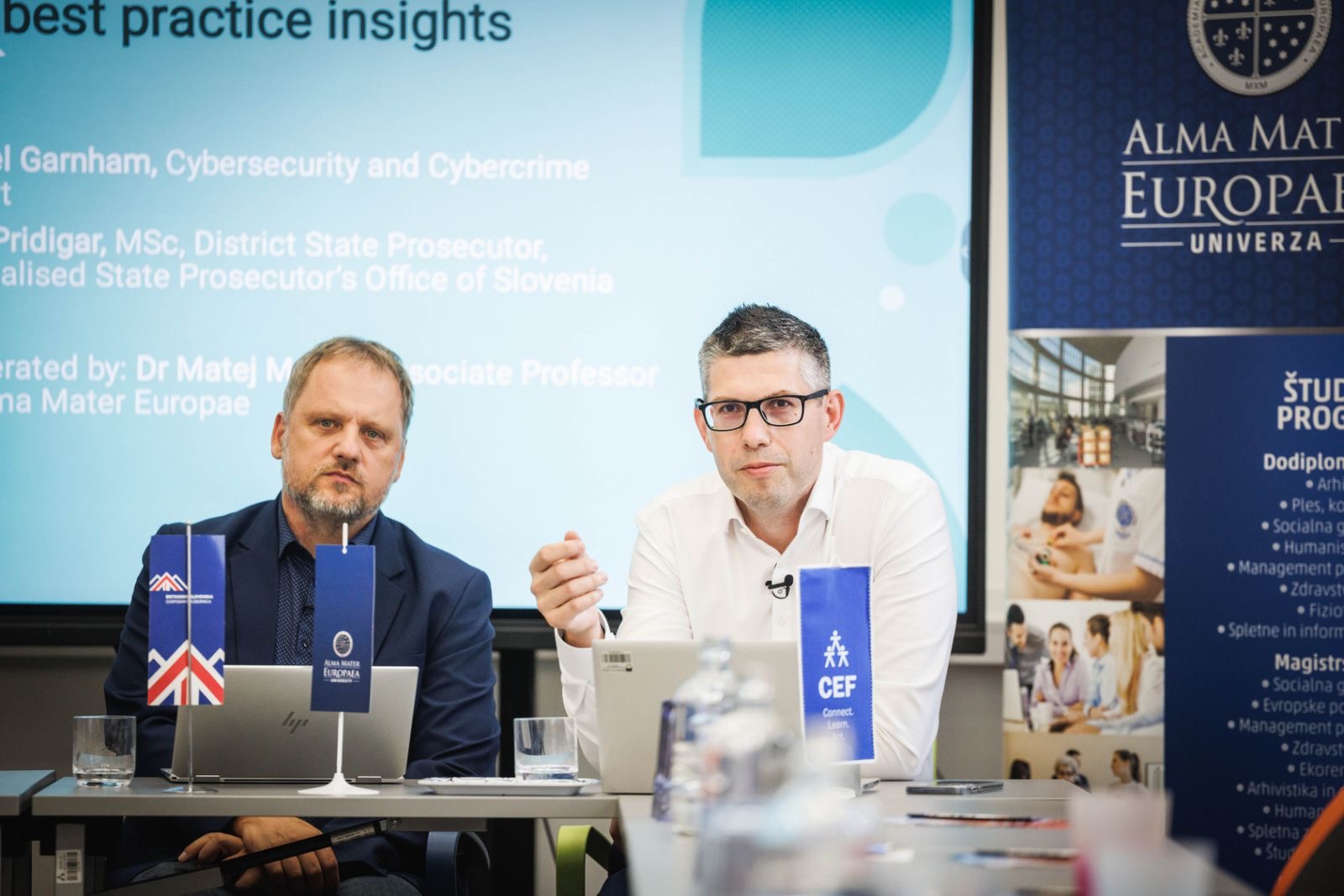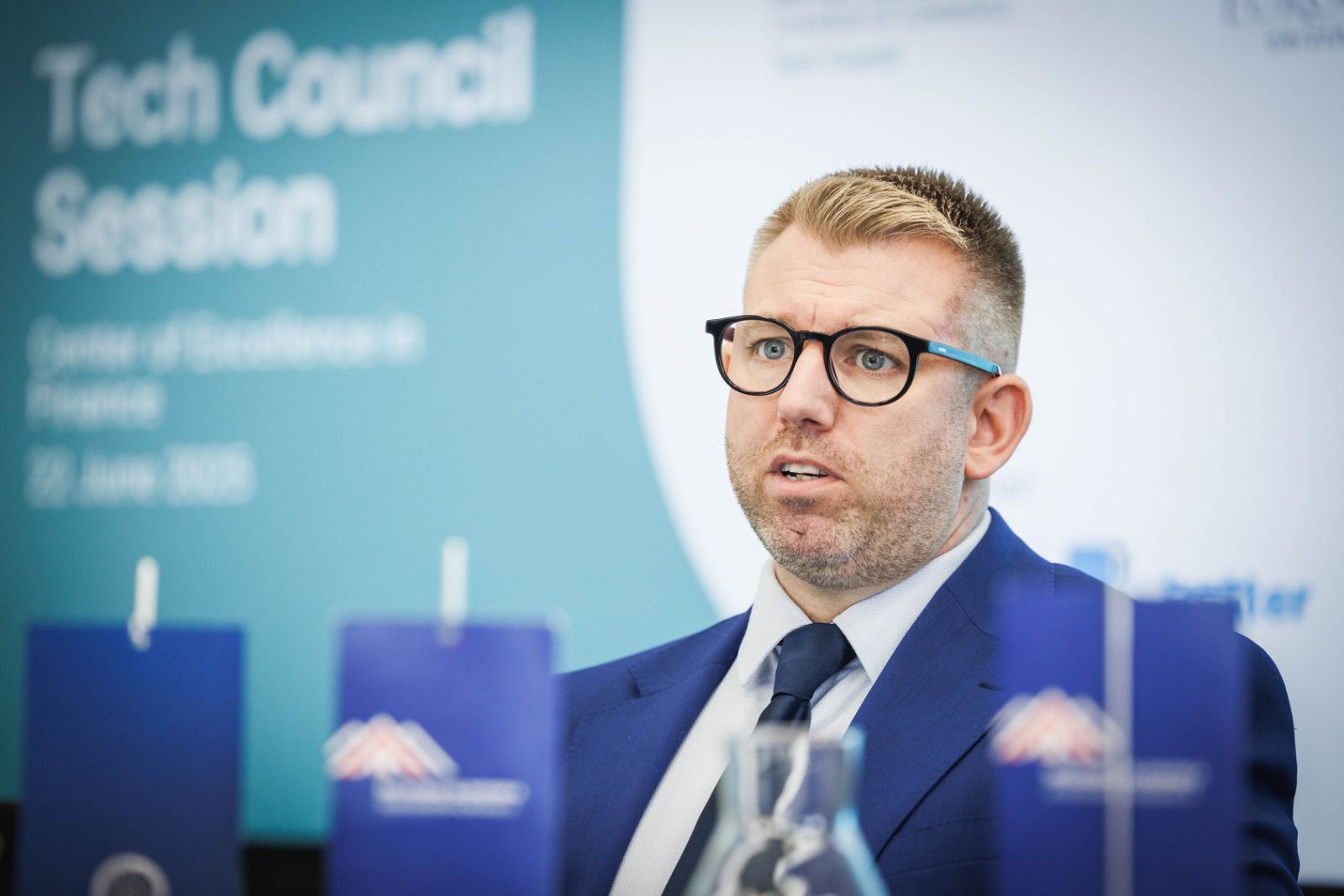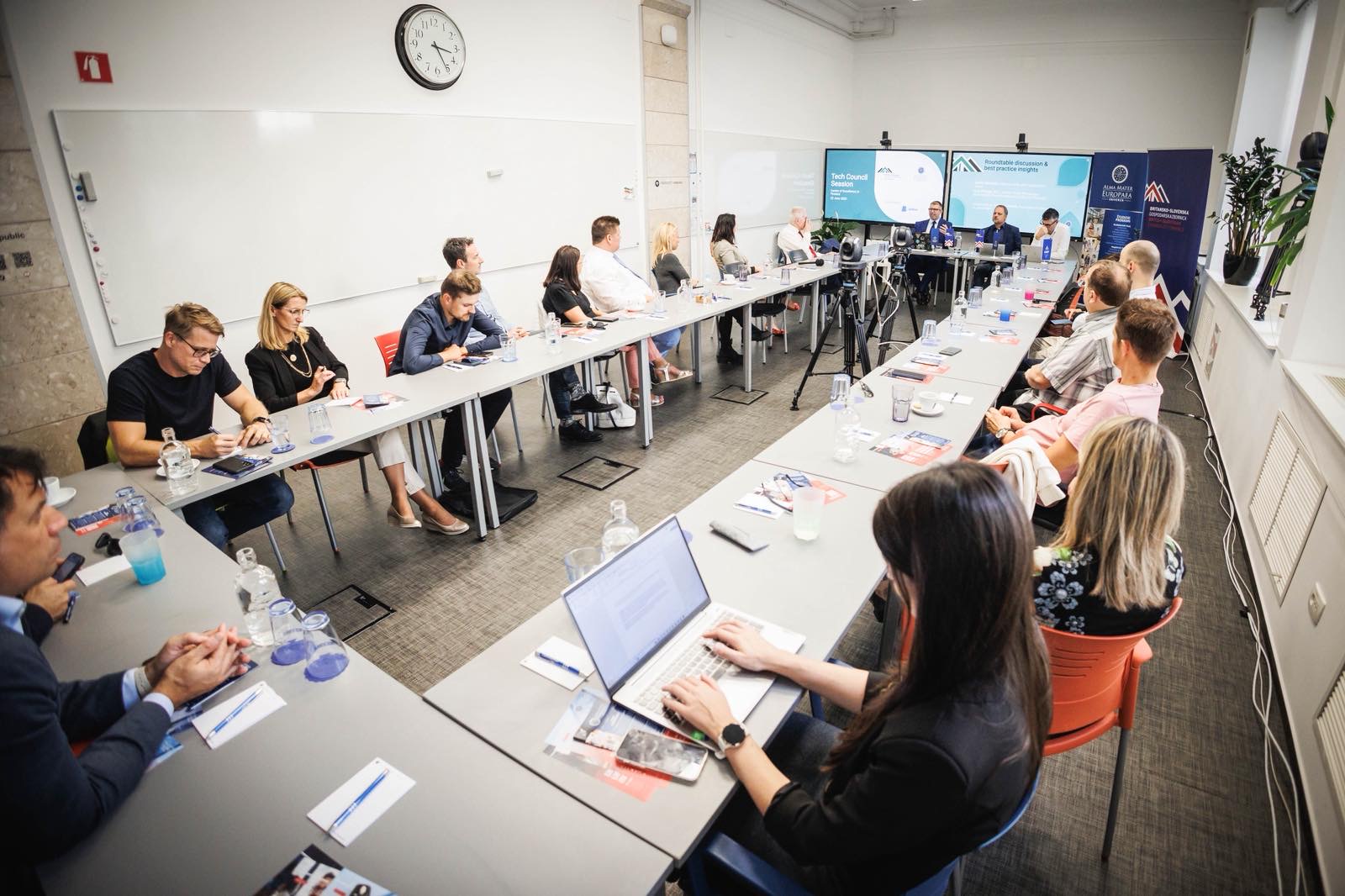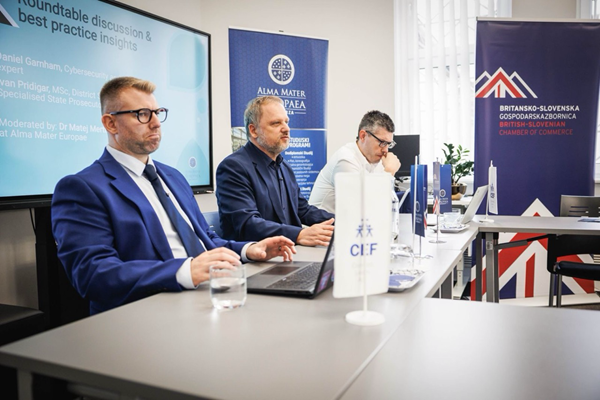
Artificial Intelligence is Changing the Rules of Cybersecurity
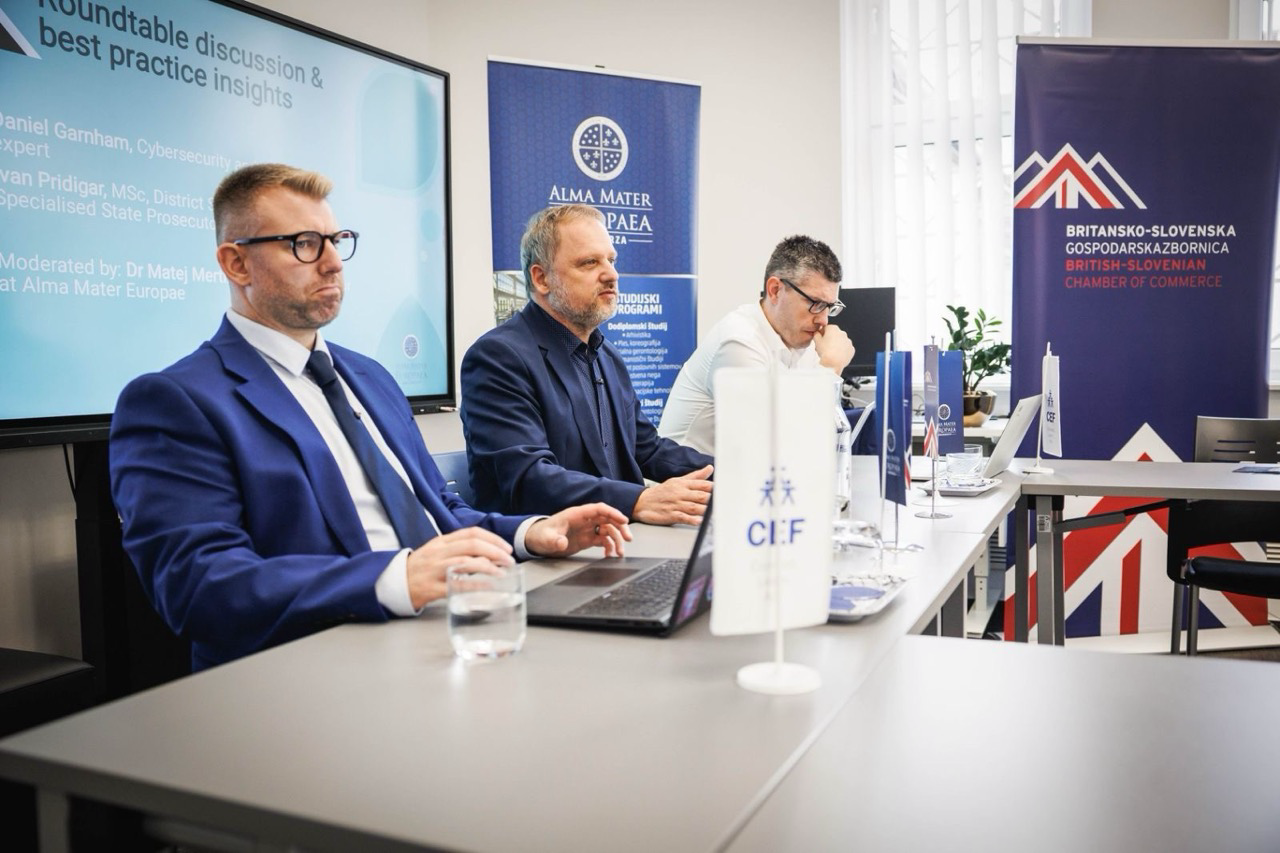
In collaboration with the British-Slovenian Chamber of Commerce, Alma Mater Europaea University organized the Cybersecurity – Perspectives from Slovenia and the United Kingdom event, which was held within the study programs Applied Artificial Intelligence and Digital Technologies.
The event, which took place on September 22, 2025, offered participants insights into the latest trends and risks in cybersecurity and highlighted the increasingly critical role of artificial intelligence in digital crime.
Artificial Intelligence as a New Dimension of Cybercrime
The event highlighted the growing role of artificial intelligence in cybercrime, both in scale and sophistication. Slovenia and the United Kingdom experts presented the latest trends and practical measures to strengthen companies' and institutions' resilience.
Alarming Growth of Cybercrime
Co-chair of the Technology Council Gregor Kovačič emphasized that data protection depends on the organization’s entire ecosystem, making awareness among employees and clients crucial. Ivan Pridigar, District State Prosecutor at the Specialized State Prosecutor’s Office of the Republic of Slovenia, noted that the number of cybercrime cases increases by 20–30% annually, with artificial intelligence facilitating sophisticated scams such as deepfake videos and fraudulent emails.
When Small Companies Become Targets and How Attackers Exploit Supply Chains
Daniel Garnham, a leading UK cybersecurity expert, pointed out that small companies often underestimate risks, as attackers frequently exploit supply chains as entry points. He stressed that even basic preventive measures, such as stronger authentication and standard device protection, can significantly reduce the risk of serious incidents.
The Dual Role of Artificial Intelligence and the Future of Security
The discussion highlighted the dual role of artificial intelligence—as a threat and defense tool—and the need for coordinated development of education, regulation, and business practices. The event also emphasized how Alma Mater Europaea actively incorporates these emerging digital challenges into its study programs, enabling students to gain a deep understanding and preparation for the rapidly evolving technological landscape. The event was hosted and moderated by Dr. Matej Mertik, Head of Web and Information Technology Programs at Alma Mater Europaea, who also contributes as an associate researcher and visiting professor at CERN.

